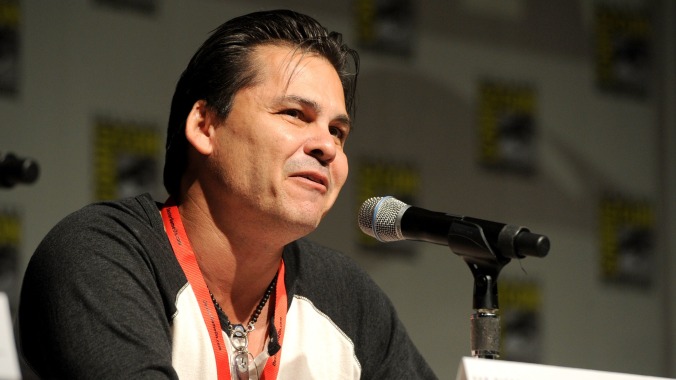Goldfinger said that before long, Lenkov—who would ultimately run the CBS reboots of Hawaii Five-0, Magnum P.I., and MacGyver—was screaming at her regularly on the phone during her 50-minute commute home. According to Goldfinger, when she arrived at her house, she’d sit in her driveway as he continued his tirade, at least until she could find a way to get him off the phone. Goldfinger has since been a showrunner herself, and she knows it’s a demanding job. But, she added, Lenkov’s calls were not “creative freak-outs or just displays of normal, occasional stress. This was inappropriate hostility and unacceptable workplace behavior. I’m pretty tough. I had been on some muscular shows. But this was abuse.”
In one instance, an unidentified woman of color shared that she received condolences when she informed people that she had been hired for a Lenkov production. “Everyone said, ‘It will be sexist. It’s really hard there for people of color. They will let you go after one year.’ I thought I’d last longer. I did not.” Another source expressed similar concerns of potential discrimination, saying that as a Black woman, “it just felt like there were extra layers of isolation, condescension, and scrutiny, which made [her] time there extremely difficult.” When her contract expired, Lenkov allegedly told her she couldn’t relying on “looking cute and being nice” and that her work would be better suited for novels (which, let’s be clear, is not something that should be deployed as an insult) as he believed that she didn’t have what it took to write for the show.
Perhaps the most troubling account came from MacGyver actor Lucas Till, who claims that Lenkov body shamed and degraded him so much that he felt suicidal for a year. Till also noted that he wrote a five-page letter to PR about Lenkov’s treatment of him and cast member Meredith Eaton. All attribute Lenkov’s alleged behavior to an overall industry culture that essentially ignores anything that isn’t strictly illegal, favoring a presumably profitable end result over any possible disruption. “There’s no way to know if someone’s going to be a good showrunner until they’re a showrunner,” said a former colleague. “And then, if the show’s a hit, there’s no incentive to change the way the showrunner does their job unless they jump the bar to behavior that will cost the company money or bad publicity.”
Per Vanity Fair, Lenkov denied all specified accounts of abusive behavior through his lawyer. However, the former showrunner did express some regret in a statement: ““Now is the time to listen and I am listening. It’s difficult to hear that the working environment I ran was not the working environment my colleagues deserved, and for that, I am deeply sorry. I accept responsibility for what I am hearing and am committed to doing the work that is required to do better and be better.” You can read the full Vanity Fair report here.

 Keep scrolling for more great stories.
Keep scrolling for more great stories.
